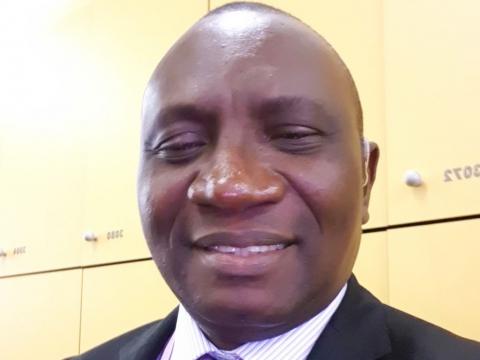By Major (Retired) Dr. Ishmail Pamsm-Conteh
Sierra Leone’s Parliament on 23 July 2020 amended The Public Order Act of 1965, (the Act No.46 of 1965). The repeal of the law has been celebrated by many, including lawyers, journalists and even politicians. Repealing the Act was a commendable thing by Parliament, as the Act had been seen as draconian by many because it had stood in the way of freedom of speech and the right to free expression in our country.
Nonetheless, attention should be drawn to the ECOWAS Court’s decision of 13 February 2018, SUIT NO: ECW/CCJ/APP/36/15, JUDGEMENT NO: ECW/CCJ/JUD/04/18, (Federation of African Journalists and the Republic of Gambia). It should be noted that there is some relevance between the mentioned case and the now repealed Public Order Act.
It is to be made clear right at the outset that my viewpoint is expressed solely on the relevance of the relationship between these two: the FAJ case and the repealed sections of the Public Order Act 1965.
The FAJ case referred to, originated from The Gambia in 2015, relating to four journalists who had been arrested, detained and tortured by the Gambia authorities, for doing their work as journalists.
The basis of the claim was that the Gambian criminal laws on libel, sedition and false news as criminal offences under Gambian media law violated their human rights, contrary to the African Charter on Human and People’s Rights, the International Covenant on Civil and Political Rights and of the Revised ECOWAS Treaty.
The Court’s decision was issued on 13 February 2018, in which it ruled that the rights of the four journalists had been violated by the actions of the Gambian authorities, by the enforcement of laws criminalising free speech.
Worthy of note is the declaration of the Court’s Judgement in paragraph 3, which reads: “Directs the Defendants to immediately repeal and/or amend its laws (the subject matter of this application) in line with its obligation under international law, especially Article 1 of the African Charter on Human and People’s Rights, the ICCPR and the ECOWAS Revised Treaty.” The Defendants in this case was the Gambian government.
The Judgment also recognised that criminal laws on libel and sedition not only disproportionately interfered with the rights of Gambian journalists, but it also recognised that the laws were an “obvious” and “gross” violations of the rights to freedom of expression.
This Judgement from the time it was issued had clear legal implications for Sierra Leone, as a member of the ECOWAS Court, under the Revised ECOWAS Treaty.
What our Parliament has now done is to bring the particular law in line with the ECOWAS Revised Treaty, ensuring that the Court’s decisions and directives are directly applicable and have direct effect on national laws of member states.
By reason of Article 5 (2) of the Revised Treaty, its applicability depends on the manner in which it is incorporated into member states’ national legislation. As it states “[e]ach Member State shall, in accordance with its constitutional procedures, take all necessary measures to ensure the enactment and dissemination of such legislative and statutory text as may be necessary for the implementation of the provisions of this treaty.”
The interpretation of the Revised Treaty means its constitutional measures are applicable for incorporation into each member state’s national laws, thus, allowing direct applicability and direct effect to the national laws of members of the ECOWAS Court, such as Sierra Leone.
What this repealed Public Order Act has achieved is that it has allowed the FAJ decision to be adopted directly into Sierra Leone’s domestic laws. Thus, giving it the legal standing of decriminalising our libel laws, which for the most part of more than 50 years, has seriously affected journalists doing their work in our country.
Without commenting on the political considerations that led to Parliament’s decision to repeal sections of the Public Order Act, or whether the FAJ ruling was coincidental to that decision, the effect is that it has brought our national laws to respect the freedom of expression as enshrined under Section 25 of our 1991 Constitution, and also in accordance with ECOWAS Court directive.
From the latter standpoint, repealing the Act shames a previous Attorneys General of Sierra Leone, who in the Sam-Sumana case, questioned the legitimacy of the Judgment issued by the ECOWAS Court in that very case. To that end, it is significant to also note that a Sierra Leonean Judge now sits at the ECOWAS Court since 2018.
It is hoped that more would be done to bring all of our national laws in conformity with developments of the ECOWAS Court judgements and directives. This would, without any doubt, reinforce and guarantee our basic human rights, according to international treaties and obligations to which our country is a signatory.
The author holds an LLB (Hons) degree from the University of Sunderland (UK), an MSc (Criminal Justice Policy) from the London School of Economics and Political Science (UK) and a PhD (Law) degree from the University of Leeds, (UK). He is currently a Faculty member at the University of Makeni, and at the Ernest Bai Koroma University, where he teaches across a broad range of law modules. Prior to a career change to academia, he had a lengthy career as a commissioned military officer of the Republic of Sierra Leone Military Forces.
Copyright © 2020 Politico Online








